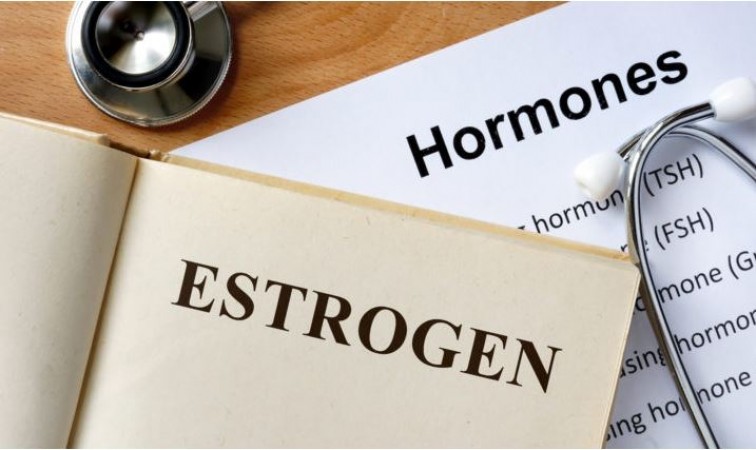
Estrogen is a crucial hormone present in both men and women, although it is often associated with female reproductive health. It plays multifaceted roles in the body beyond reproduction, affecting various systems. This article aims to comprehensively explore the functions of estrogen, the consequences of its deficiency or excess, and how to manage estrogen levels for overall well-being.
What is Estrogen?
Estrogen is a group of sex hormones categorized into three main types: estrone (E1), estradiol (E2), and estriol (E3). While primarily produced in the ovaries of women, smaller quantities are synthesized in the adrenal glands and, to some extent, in men's testes.
Functions of Estrogen:
Reproductive System:
Estrogen plays a pivotal role in regulating the menstrual cycle, promoting the development of secondary sexual characteristics, and maintaining the health of the reproductive organs.
Bone Health:
It aids in sustaining bone density and strength, thereby reducing the risk of osteoporosis.
Cardiovascular Health:
Estrogen contributes to healthy blood vessels and optimal cholesterol levels, consequently lowering the risk of heart disease.
Brain Function:
Influencing cognitive function, mood, and memory, estrogen plays a crucial role in brain health.
Skin Health:
Estrogen contributes to skin elasticity and hydration, influencing overall skin health.
Signs of Low Estrogen:
When estrogen levels dip below the optimal range, various signs and symptoms may manifest, including:
Irregular Menstrual Cycles: Low estrogen can result in irregular or missed periods.
Hot Flashes: Frequent hot flashes and night sweats can disrupt daily life.
Vaginal Dryness: Estrogen deficiency may lead to vaginal dryness, making intercourse uncomfortable.
Mood Swings: Changes in mood, characterized by increased irritability and anxiety.
Decreased Libido: Reduced interest in sexual activity may occur.
Causes of Low Estrogen:
Several factors can lead to low estrogen levels, such as:
Menopause: A natural biological process, menopause, involves a gradual decline in estrogen production.
Hypogonadism: This condition occurs when the ovaries do not produce sufficient hormones, affecting estrogen levels.
Excessive Exercise: Engaging in intense physical activity without proper nutrition can disrupt hormonal balance.
Eating Disorders: Conditions like anorexia nervosa or extreme dieting can result in low estrogen levels.
Certain Medications: Specific drugs, including chemotherapy agents, may lower estrogen levels.
Effects of High Estrogen:
Excessive estrogen levels can also trigger various noticeable effects, including:
Irregular Menstruation: High estrogen can lead to heavy or irregular menstrual bleeding.
Breast Tenderness: Swelling and tenderness of the breasts may occur.
Mood Changes: Elevated estrogen levels may lead to increased anxiety, irritability, or mood swings.
Weight Gain: High estrogen might contribute to weight gain, particularly in women.
Increased Risk of Certain Cancers: Prolonged high estrogen levels may elevate the risk of breast and uterine cancers.
Causes of High Estrogen:
Several factors can lead to elevated estrogen levels in the body, such as:
Hormonal Therapy: Certain hormone replacement therapies may disrupt estrogen balance, resulting in increased levels.
Obesity: Fat cells can produce estrogen, leading to higher levels in obese individuals.
Estrogen Dominance: This condition arises when estrogen levels are disproportionately high compared to progesterone levels.
Polycystic Ovary Syndrome (PCOS): PCOS, an endocrine disorder, is often associated with elevated estrogen levels.
Balancing Estrogen Naturally:
Maintaining optimal estrogen levels is crucial for overall health and well-being. Here are some natural approaches to help balance estrogen:
Diet and Nutrition: Consuming a balanced diet rich in fiber, antioxidants, and essential nutrients can support hormonal balance.
Regular Exercise: Engaging in regular physical activity can help regulate hormone levels and promote overall health.
Stress Management: Practicing stress-reduction techniques such as meditation and mindfulness can have a positive impact on hormonal balance.
Maintaining a Healthy Weight: Achieving and maintaining a healthy body weight can help regulate estrogen levels.
Phytoestrogens: Incorporating foods rich in phytoestrogens, such as flaxseeds and soy, can help modulate estrogen activity in the body.
Medical Interventions for Estrogen Imbalance:
In some cases, medical interventions may be necessary to address estrogen imbalances, including:
Hormone Replacement Therapy (HRT): HRT can be prescribed to supplement estrogen levels in individuals experiencing deficiency-related symptoms.
Medications for High Estrogen: Medications may be prescribed to reduce estrogen levels in cases of excess estrogen.
Fertility Treatments: In situations where hormonal imbalances affect fertility, medical treatments may be recommended.
Maintaining a healthy balance of estrogen is essential for overall well-being. It is crucial to recognize the signs of estrogen deficiency or excess and take appropriate steps to address them. Consulting a healthcare professional is advisable for personalized guidance and treatment options tailored to individual needs.
Cheetah Reintroduction Project at KNP Celebrates One-Year Anniversary
How to Boost Fertility and Strengthen Your Immune System with Figs
Reservation Bill 2023: What Does It Encompass? A Birds Eye View